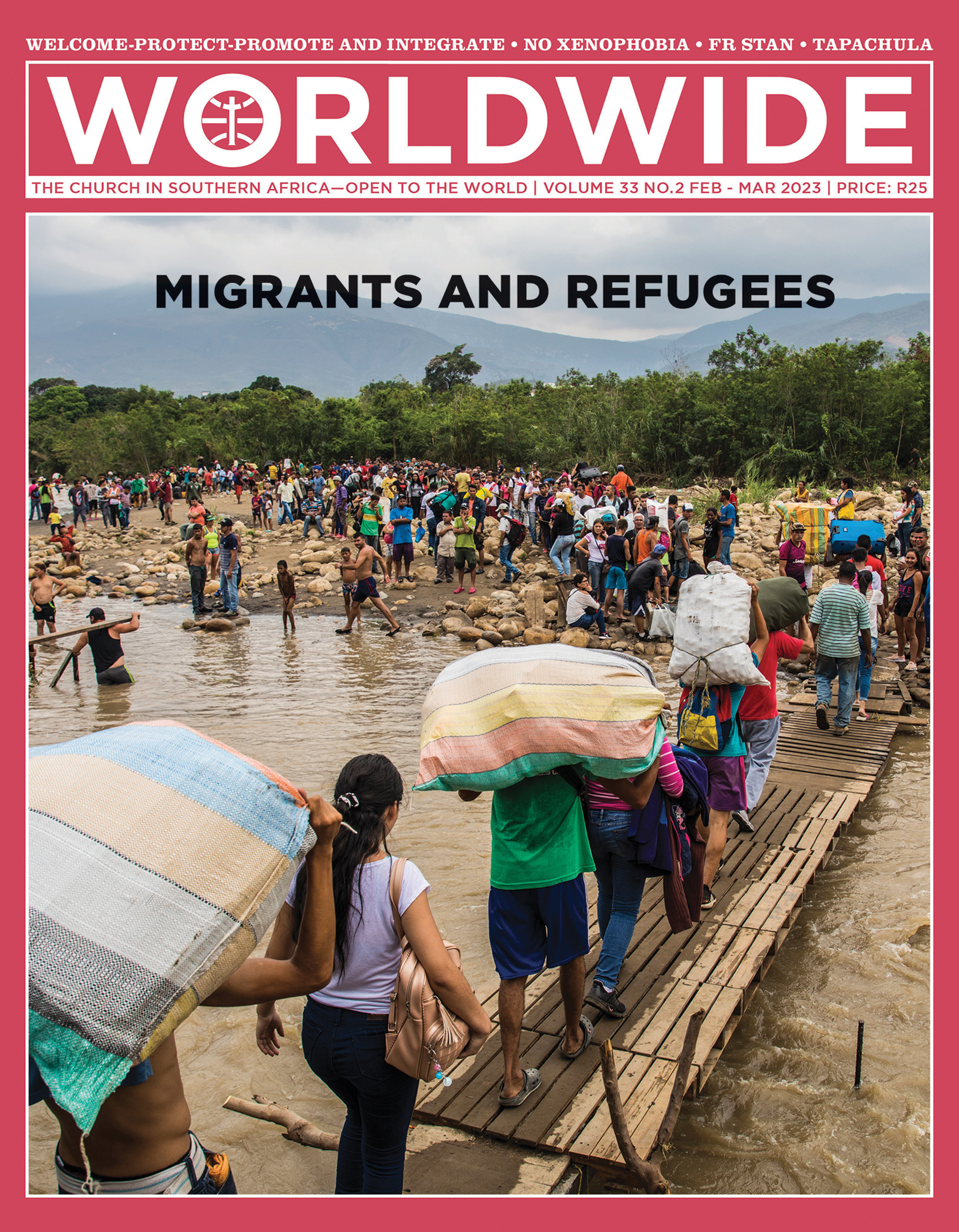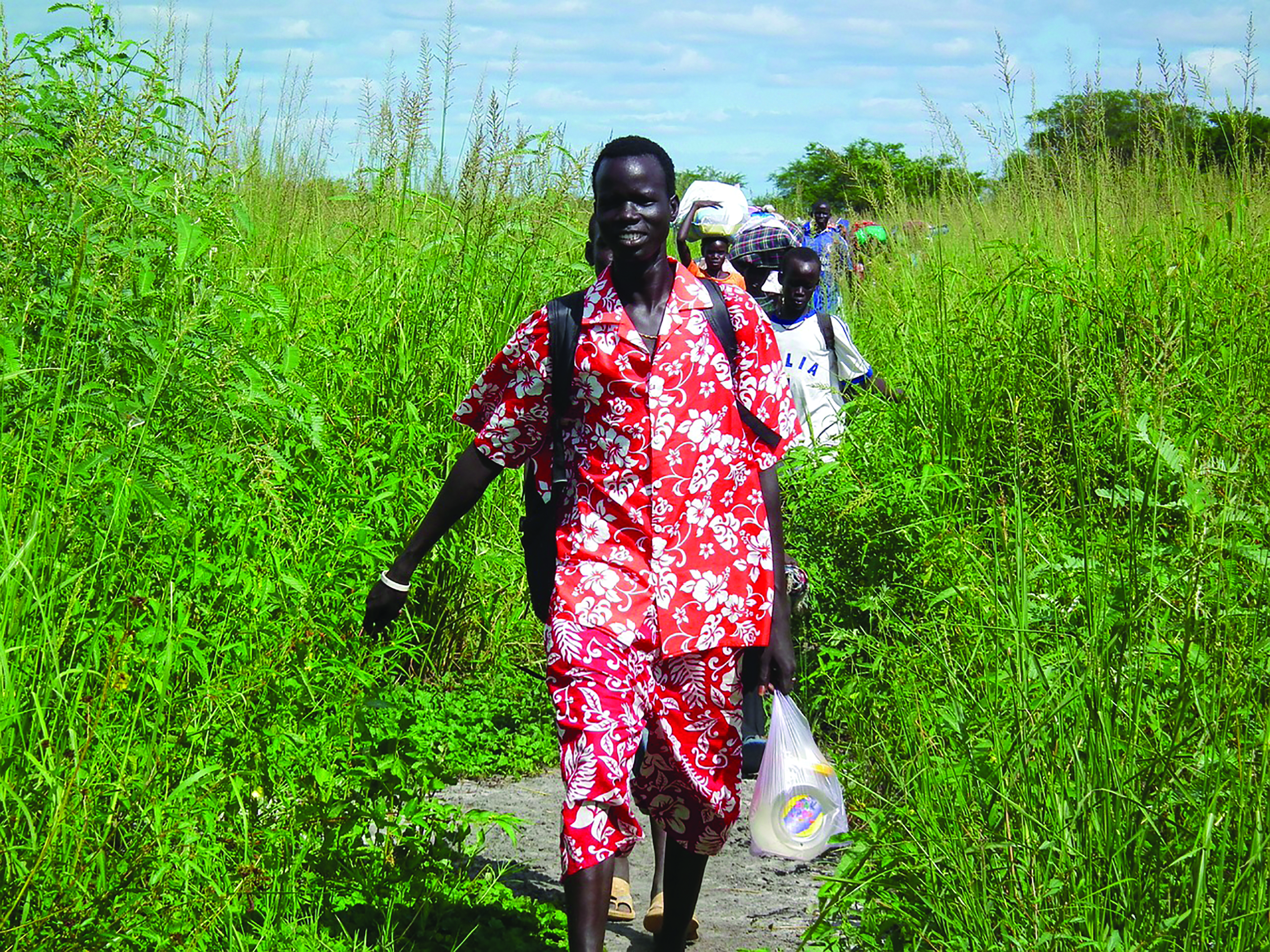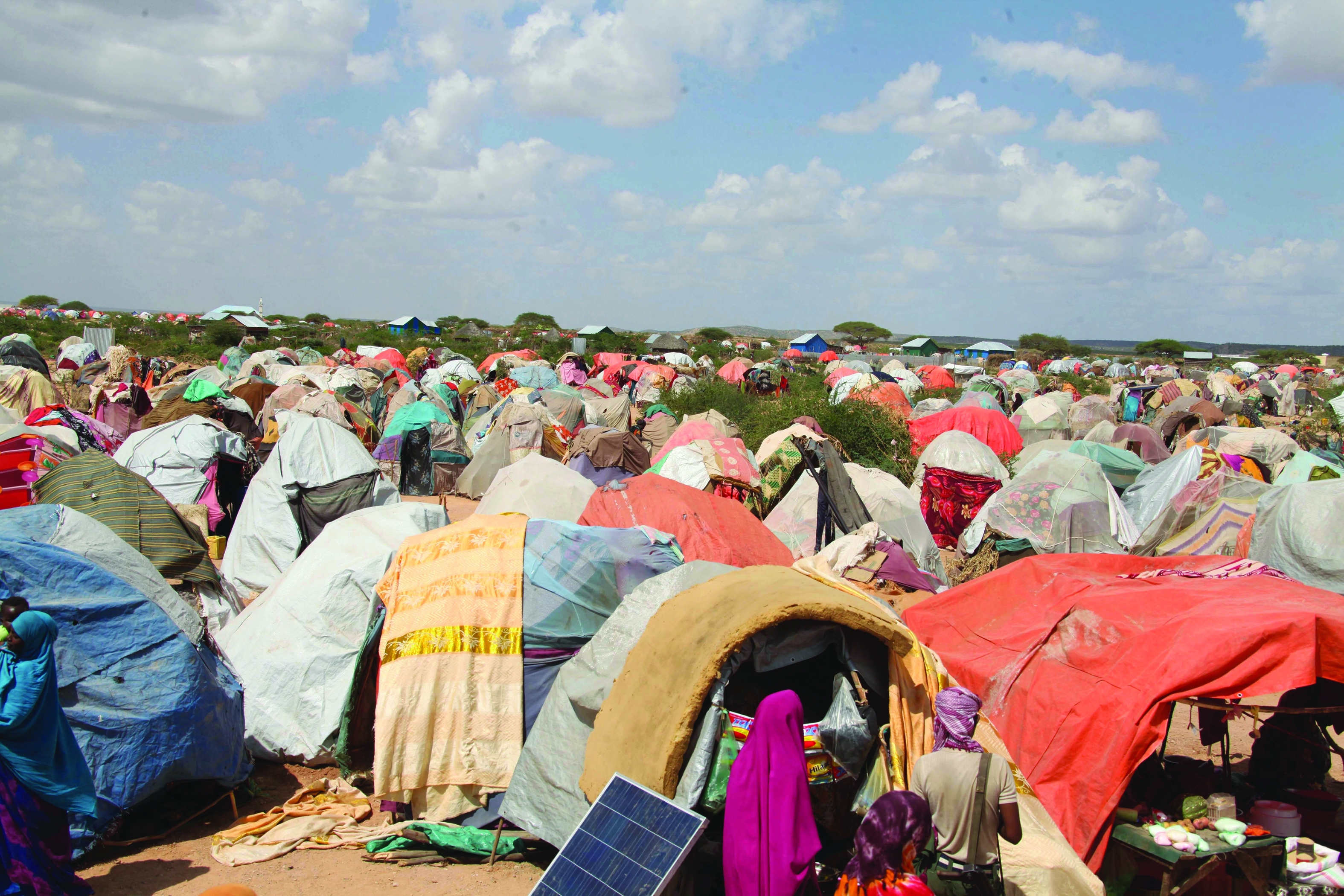
MIGRANTS AND REFUGEES
Dear subscriber
Thanks for your generous and faithful support of Worldwide and your continuous
encouragement to make it always a better magazine. We would like to
invite you to become a promoter of Worldwide subscriptions among your
family, fellow Church congregants or friends. Please find below the form with
the information needed for the new subscribers.
With sincere gratitude in advance. God bless you.
Worldwide team
REFLECTIONS • FAITH RESPONSE

The Quest for a Better Life: Enhancing Solidarity with Migrants and Refugees
In this reflection, the author presents a genuinely Christian response, grounded in Scripture, to the drama of millions of migrants and refugees throughout the world who call out at our doors
BY Fabian Oliver | Theologian, Johannesburg
Escaping terror, finding terror
For many migrants and refugees, leaving their homeland is not only the quest for a better life, but for some, it is their only hope of staying alive. Many are fleeing from the horrors of civil war, violent dictatorships, sexual abuse of women, and extreme forms of poverty and oppression. The search for a better life is perhaps the signalling of a spirituality that chooses life in the midst of death. For some, it is an awareness that God still loves them and wants them to have life in its fullness—and this keeps them going.
However, the quest for a better life is often met with a different kind of terror in their new dwelling place in the form of ghastly living conditions in refugee camps, exploitation by local government officials, afrophobia, xenophobia, and gravely underpaid employment. We are not to forget that for many migrants and refugees the situation they find themselves in is not isolated and exists in a history of slavery, colonialism, racism, and systemic patriarchy. There remains a dire need for justice and solidarity for migrants and refugees. This reflection offers possible considerations.

Solidarity is Biblical
Throughout the Bible, there are stories of migration and refuge. From the onset, there are various teachings on how the Israelites ought to treat the ‘foreigner, stranger or alien.’ As part of the laws of justice and mercy in Exodus 23: 9, the people are reminded not to oppress the foreigner for they themselves know what it feels like to be oppressed in another country. Thus, hospitality towards strangers is a key part of Israelite identity. Jesus’ birth is also marked by His parents becoming refugees, fleeing
their homeland to a place of safety (Mt 2: 13–23). In His ministry, Jesus knew about the experience of not being welcome, feeling destitute, and without a dwelling place. This is evident in His words, “the foxes have holes, and the birds of the air nests but the Son of man has no place to lay His head” (Lk 9: 58). Jesus notes that the Kingdom of God will be given to those who welcome the stranger, for in doing so they have welcomed Him (Mt 25: 35).
Thinking theologically
Reflecting on migration and God, Botha (2013) offers the metaphor of God as a migrant who derives from God’s dwelling of non-accessible light to[wards] creation. Thus, in Jesus, God comes to us as a stranger in our midst. In reflecting on Jesus’ birth story marked by fleeing from violence, Askevold (2008) boldly states that every migrant [refugee or asylum seeker] “carries the face of Christ, and this compels us to act in a way that protects this innate dignity.” In a similar vein, we can say it is God who waits at the border with the many destitute, it is God who settles in conditions of squallor in the refugee camps, and it is God who weeps with those who have lost loved ones drowned at sea. On the flip side of a theology of God as a migrant, we can also think of God, who is the Creator of our cosmos, and thus it is God who has welcomed us into Himself as children, offering us the land as a means of living life in abundance together. Therefore, we are called to be stewards of the land. This idea of God was reminiscent of the prayer for refugees said by Pope Francis during his trip to the migrants, refugees and asylum seekers at the port of Lesbos:
Jesus notes that the Kingdom of God will be given to those who welcome the stranger, for in doing so they have welcomed Him
“Merciful God, may we share with them the blessings we have received from Your hand, and recognize that together, as one human family, we are all migrants, journeying in hope to You, our true home, where every tear will be wiped away, where we will be at peace and safe in Your embrace.” (Vatican Radio 2016).

Solidarity and advocacy
The situation with migrants and refugees calls us to an ever-present solidarity with all who suffer and are pushed to the peripheries of society. It calls us to carefully think of our methods and governance towards those seeking a better life. More radically, solidarity calls to question our own xenophobia, indifference, and self-centredness. It calls us to question the very reason why there is perpetual displacement, violence, and poverty visited upon certain communities. We need to critique policies and notions that view solidarity and concern for the poor and the marginalised as obstacles to economic growth. Beyond the vast amounts of social aid and policies geared towards migrants and refugees, the question remains, why is the situation and treatment of these people so vile and oppressive? There are no quick fixes or easy answers. However, there are ample possibilities for attaining a better life for all, working together as people, religious organisations, civil society, government, private and public sectors.
| Dates To Remember |
|
February 1 – Blessed Benedict Daswa 2 – World Wetlands Day 4 – International Day of Human Fraternity 6 – International Day of Zero Tolerance to Female Genital Mutilation 8 – International Day of Prayer and Awareness Against Human Trafficking 11 – World Day of the Sick 11 – International Day of Women and Girls in Science 13 – World Radio Day 20 – World Day of Social Justice 21 – International Mother Language Day 22 – Ash Wednesday March 1 – Zero Discrimination Day 3 – World Wildlife Day 5 – International Day for Disarmament and Non-Proliferation Awareness 8 – International Women’s Day 15 – International Day to Combat Islamophobia 20 – International Day of Happiness 20 – St Joseph, Husband of Mary 21 – Human Rights Day 21 – World Down’s Syndrome Day 22 – World Water Day 24 – World Tuberculosis Day 25 – International Day of Remembrance of the Victims of Slavery and the Transatlantic Slave Trade |
